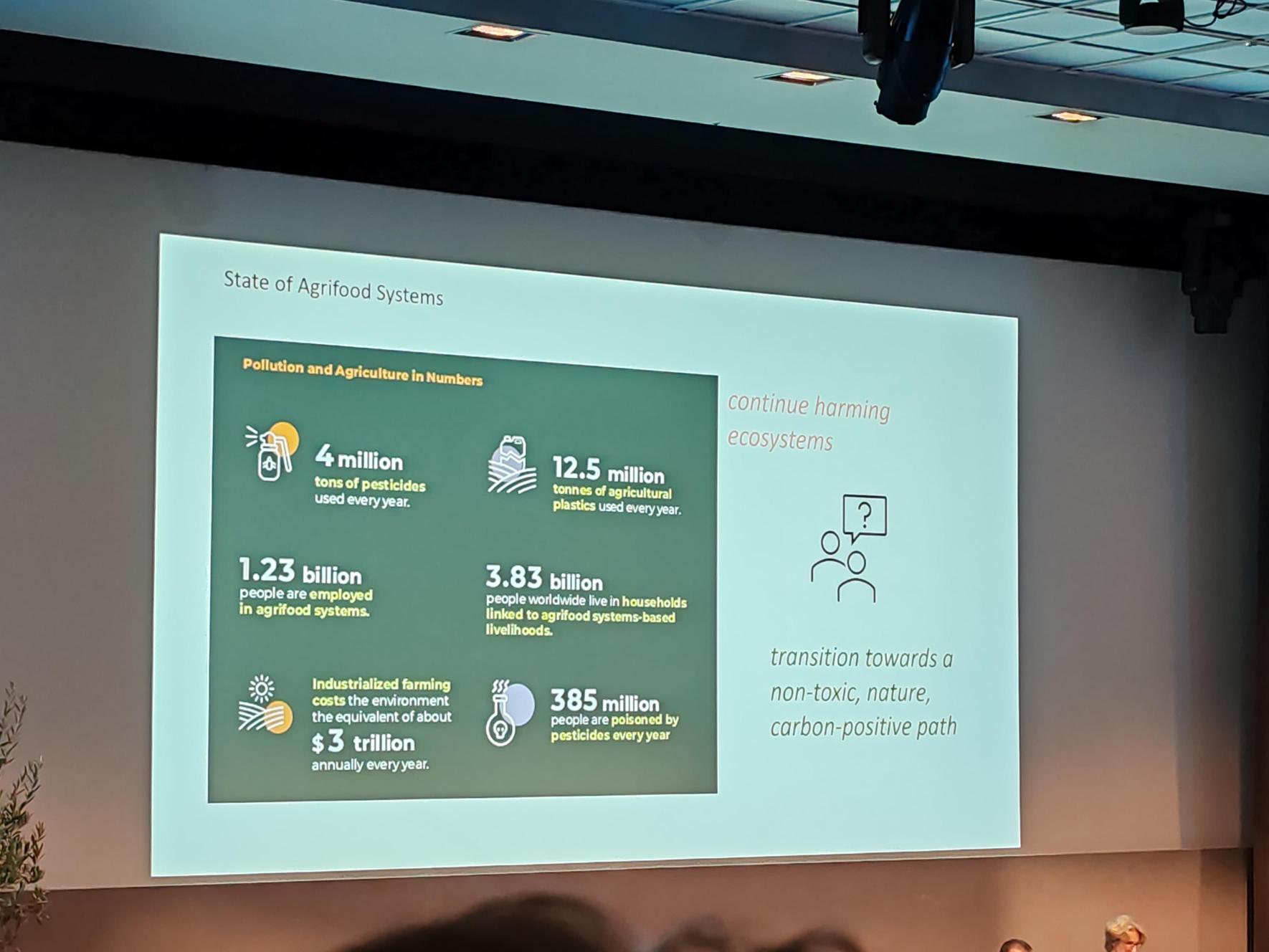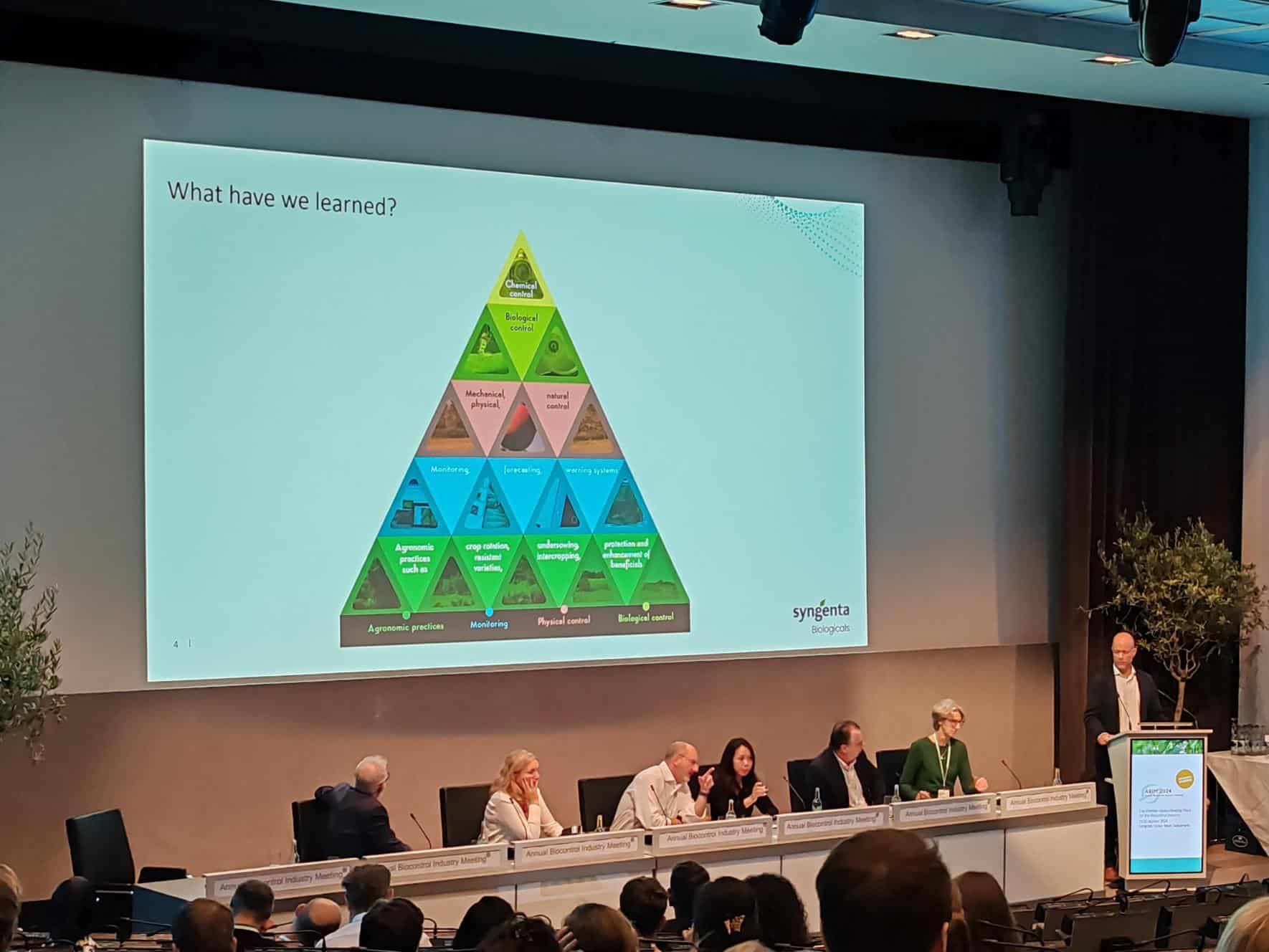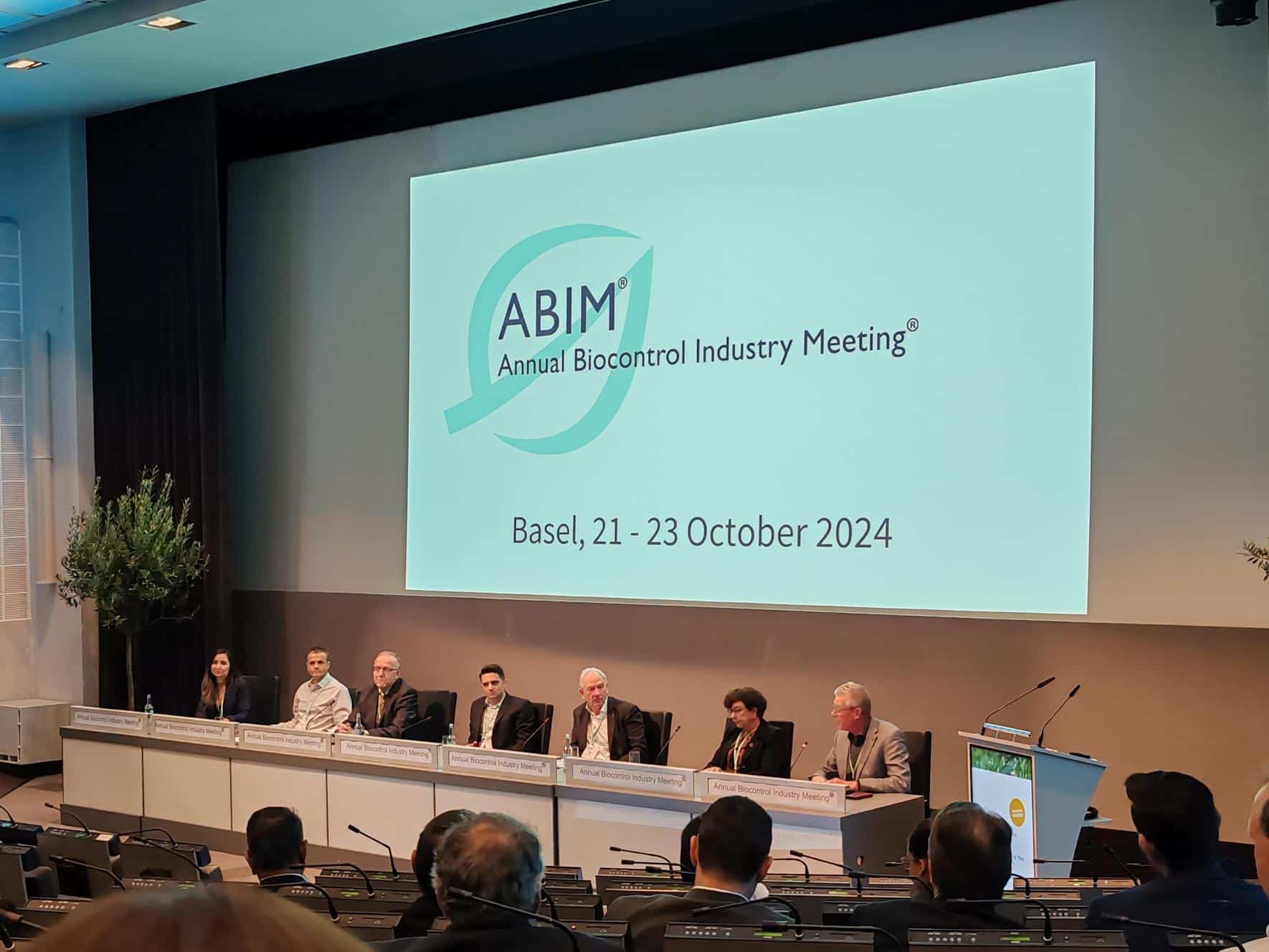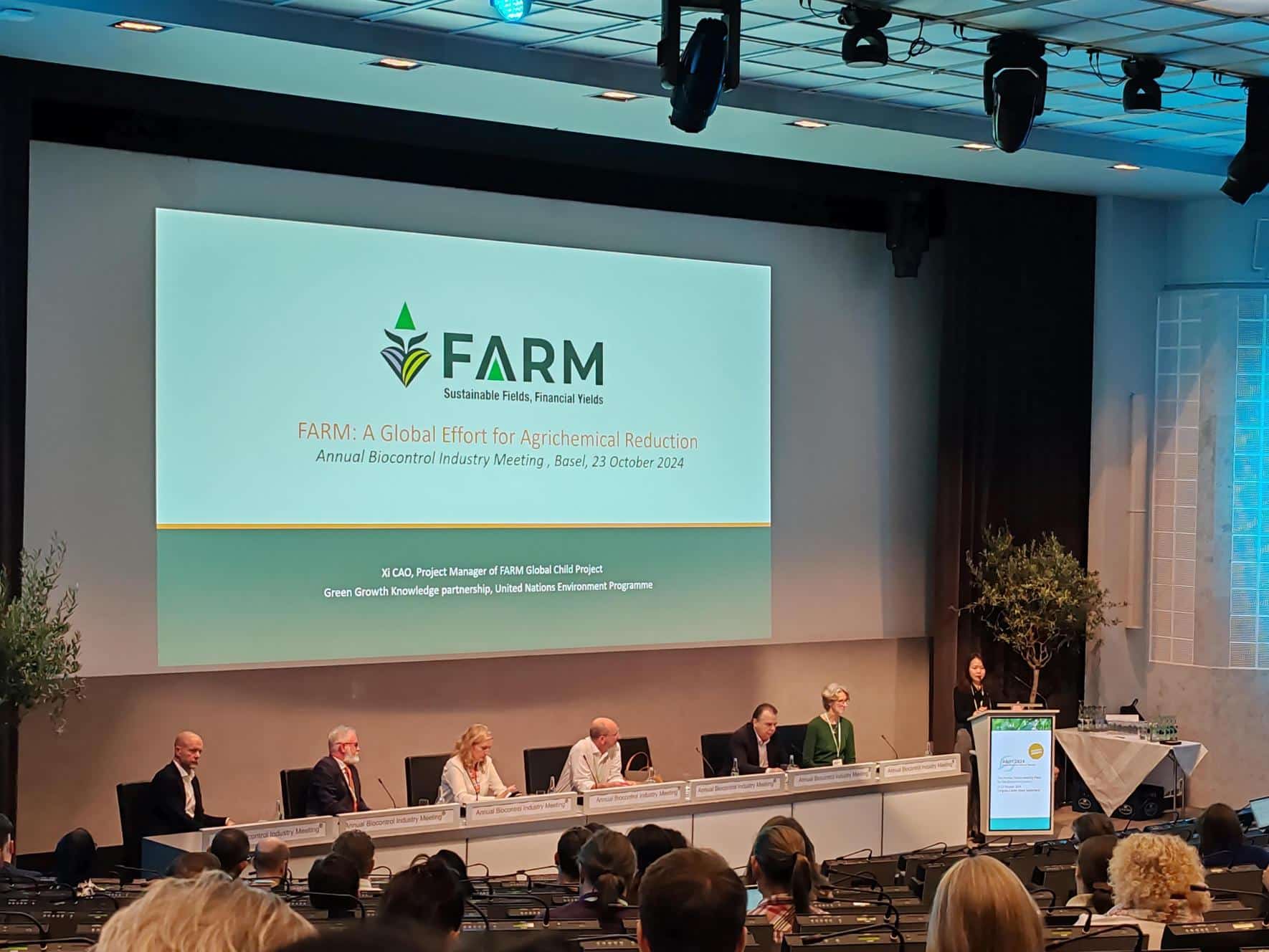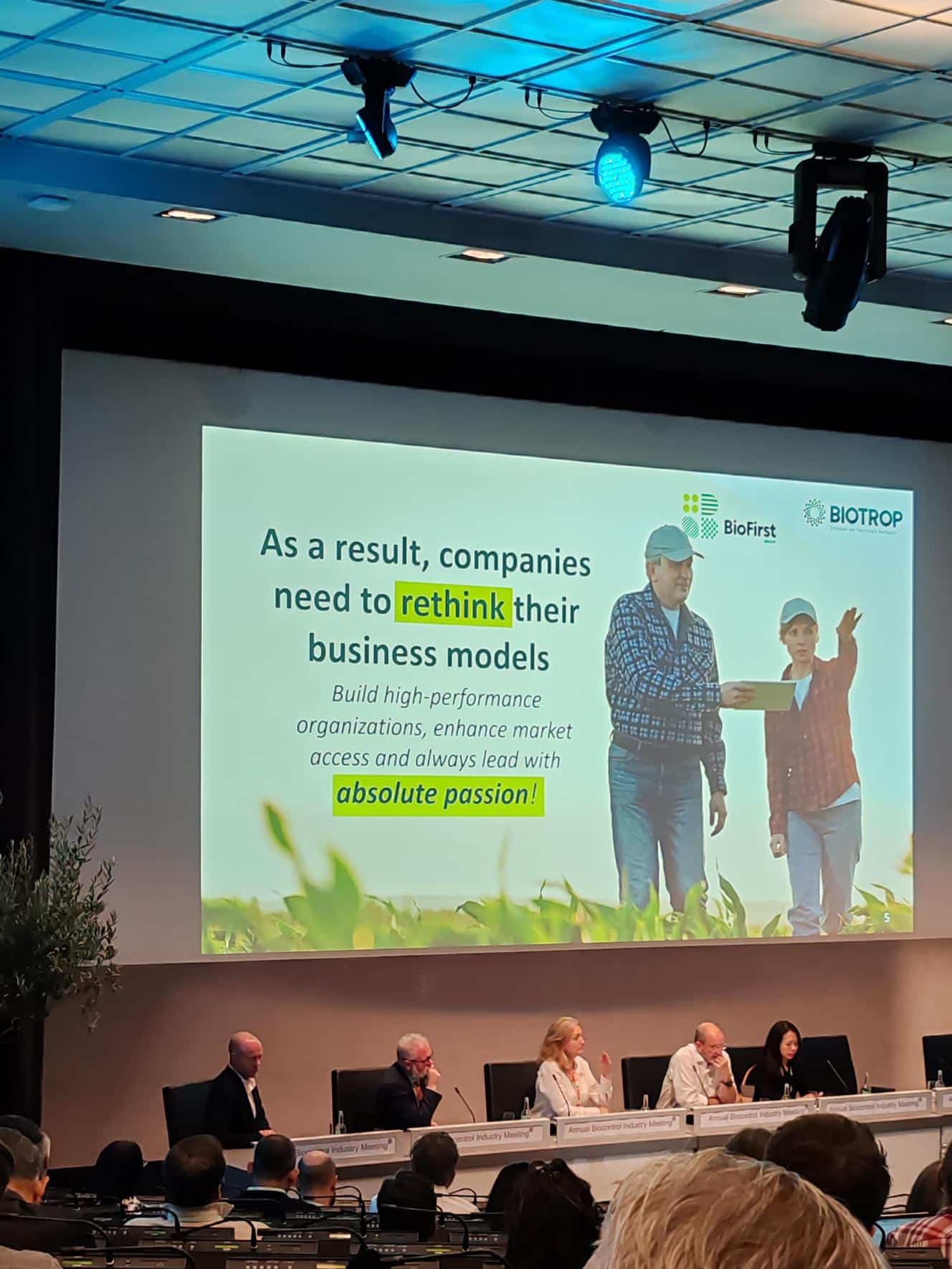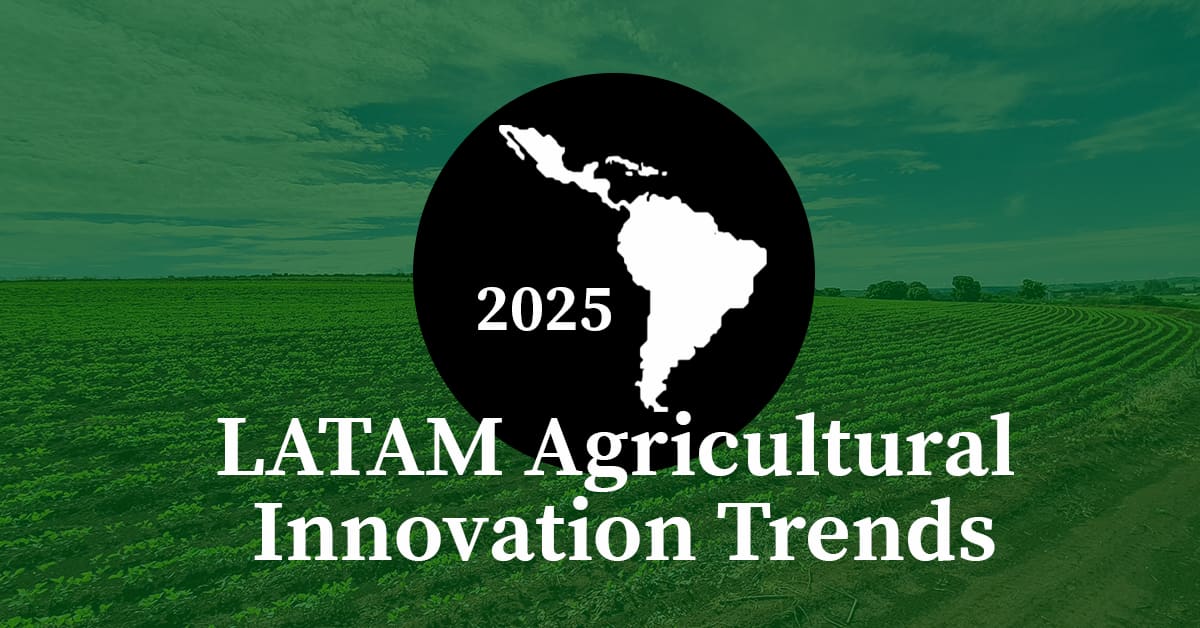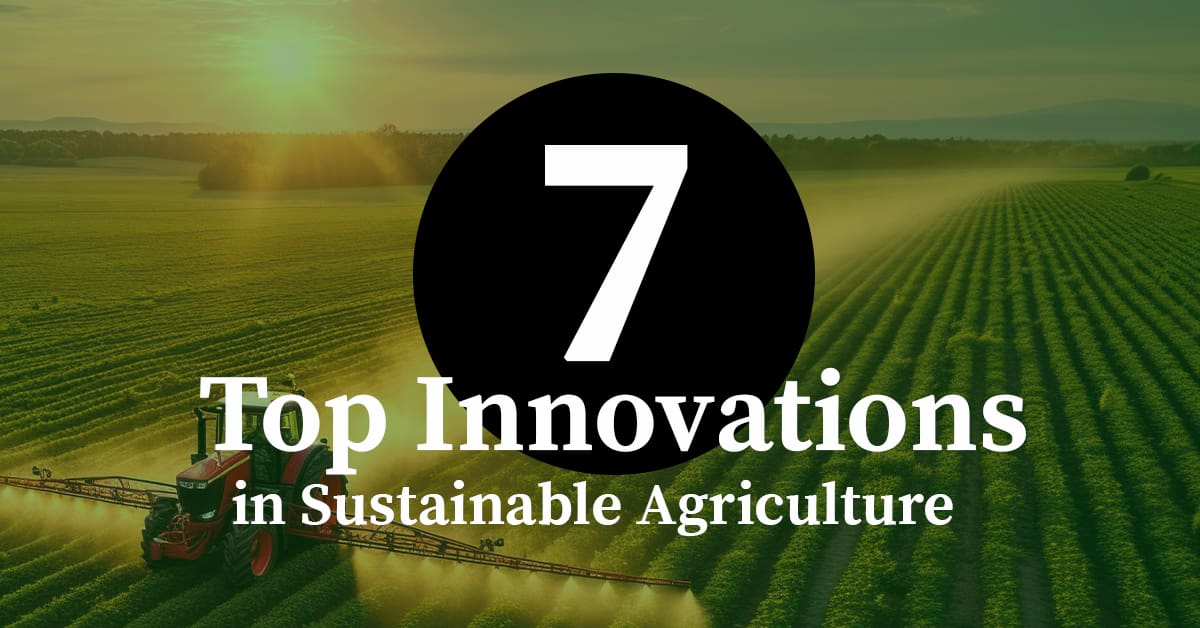Last month, the AgriThority® team traveled to Basel, Switzerland, and joined more than 1,800 delegates from 58 countries for the Annual Biocontrol Industry Meeting (ABIM). It was an outstanding opportunity to connect with innovators from around the globe and experts in the biocontrol space. The team had many interesting conversations with both private and public entities and heard compelling insights in the sessions. Throughout the meeting, three key topics emerged.
1. Registration Process Impacting Investment
Innovators are committed to developing biocontrol solutions to reduce the environmental impact of agricultural practices, but there is a genuine concern regarding the challenges in the biocontrol registration process, which impacts in the current level of investment. While challenges over geographical variability, terminology and labeling requirements have seen improvements, the process needs to be fast tracked to be less arduous for most new biological products.
There is an urgent need for authorities to facilitate this process and the sector is looking for a reaction from political regulators about food security. In the last 5 years, 76 crop protection synthetics active ingredients were banned in the EU, but no new ones were approved. There is a significant gap biocontrols can fill if the registration process can become more streamlined.
Based on current challenges with the slow process of getting new bioproducts in the market and lack of solutions, attendees discussed the importance of farmers raising their voices, so authorities will listen better than if it’s a request of private companies.
2. Gaps in the Adoption Process
It is essential to educate farmers about biocontrols to gain adoption, and an integrated approach involving them is essential. There is a gap between research and farm-level implementation. However, this does not mean companies or innovators should skip the development process and go straight to the field. If farmers have a bad experience with a technology, they are less likely to try another in the future. Biosolutions are essential but not the unique approach: Farmers training and assistance with intermediate solutions, such as agronomic practices, monitoring and physical controls, are also necessary before using conventional chemicals as a primary solution.
A key question arises: Who should be responsible for educating farmers?
3. Opportunities in Biocontrols
Latin America, mainly Brazil, is becoming increasingly successful in driving growth in the biocontrol industry, which presents a model for progress through a combination of government support, enhanced grower education, improved regulatory process and economic incentives.
Companies can differentiate themselves through advanced technologies, market access and regulatory expertise. Although the situation is challenging, it is not impossible. Companies need to overcome barriers to find success bringing biocontrols to market. There is especially increasing interest and opportunity placed in bioherbicides and metabolite-based products.
When your new biocontrol technology is ready for product development, turn to AgriThority® for strategic and scientific expertise. Our global footprint is combined with our deep understanding of agricultural business, regulatory demands, market channels and producer dynamics. We help move your innovation from concept to commercial adoption.

